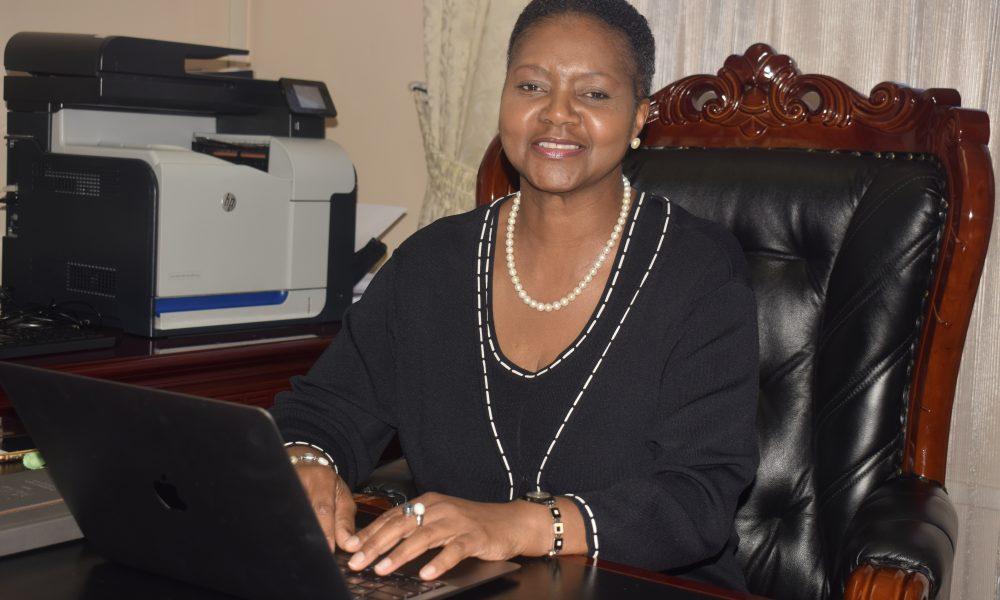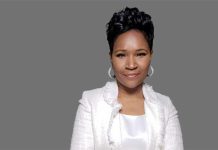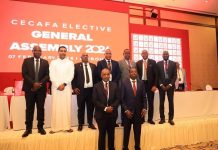Africa-Press – Lesotho. THERE are times when ’Mathabo Makenete, Lesotho’s new Auditor General, feels exasperated. While her main task is to audit government departments and ministries to ensure there is no financial impropriety, she feels her office lacks the operational autonomy to discharge her duties well.
Take for instance the simple matter of where her office is housed. It lies right within the belly of the Ministry of Finance, a ministry she is supposed to audit.
The Ministry of Finance and the Auditor General’s office all share the same switchboard operator. All the calls to her office pass through that same switchboard. Makenete says this situation is highly frustrating.
“We should not be sitting here,” Makenete says, referring to the Finance House which accommodates her office, the Ministry of Finance and its many departments and the Revenue Services Lesotho (RSL).
Her concern is that even when a whistle-blower calls they will be received by a shared switchboard operator whose devotion to the cause of the office of the Auditor General may not be guaranteed.
Makenete, 59, says it is easy for all departments accommodated at the Finance House to know who is calling her office and may guess the purpose of the call.
“We have to be fully extricated from the mainstream government,” she says.
“We need functional independence, away from government offices.
” Makenete is a well-respected Chartered Accountant boasting over 20 years’ experience as a senior official at the Central Bank of Lesotho (CBL).
Makenete, who for years, has been a trainer of trainers of senior officials on finance and governance compliance for central banks throughout eastern and southern Africa, says real independence is a key determinant of the ability to counter corruption.
The former Deputy Governor of the CBL says it is crucial to separate her office’s operational control from the Ministry of Finance, currently led by Dr Retšelisitsoe Matlanyane.
“We don’t have to report to a person we are auditing,” she says, adding: “We have to find a way to ensure that this umbilical cord is cut.
” Makenete says it requires political will and support to ensure that her office has financial and administrative autonomy.
Her fear is that if this issue is left unchecked it could be easy for the office of the Auditor General to be subjected to political interference and politicisation. The law establishing her office clearly says it shall be an independent and autonomous body capable of suing and being sued in its own name.
It also provides that the office of the Auditor General shall enter into contracts, hold, buy, acquire and dispose of any property in the course of carrying its functions.
The law says the office of the Auditor General shall be independent in its performance of duty and exercise of its powers and have administrative autonomy.
The Auditor-General is appointed by the King, acting in accordance with the advice of the Prime Minister and is the head of a supreme audit institution of Lesotho.
The law stipulates that the Auditor General shall not be subject to the direction or control of any person or authority in the discharge of her duties. She is sworn into office by the Chief Justice before undertaking her duty to abide by the laws of Lesotho and to uphold the rule of law.
Makenete, a daughter of a much respected medical doctor, Strong Thabo Makenete who is a former government minister now aged 99, became an accountant by default.
She says she wanted to study medicine like her parents (her late mother ’Maseeeng Olive Makenete who was a nurse) but she failed her first year at the National University of Lesotho (NUL) where she was studying for a Bachelor of Science degree.
She is from a family of medical nerds; her father, mother, her famous maternal uncle Dr Ntšekhe (who the Mohale’s Hoek’s Ntšekhe Hospital is named after), and her brother, sister and two cousins who are all in the medical profession.
She wanted to take the same route but when her results at the end of her first year of studies were not good, she decided to change the course from BSc to a Bachelor of Commerce degree.
She says she is open about her academic struggles because she wants to educate young ones that they can still get up and soldier on despite setbacks. Later she enrolled at the Centre for Accounting Studies (CAS) where she found a club of students who helped each other “and I found them very helpful”.
She excelled in accounting despite that when she first joined the course in second year at NUL, she did not have any background of it, even mere bookkeeping.
Soon after graduating she got a job at a firm of accountants, Khali, Dlamini and Associates where she worked for six months for her tennis mentor, E M Khali, then later to the Labour and Employment where the Deputy Principal Secretary Paul Morolong, another tennis mentor, found her a job at the Ministry as a senior accountant.
From there she joined the CBL where she became an internal auditor and later worked at the Bank’s Foreign Exchange and Reserves Management Division. Makenete also worked as Director of Financial Markets where she was exposed a lot to how the world deals with fluctuating markets, which put her in a position to adequately advise her bosses.
“The CBL trains a lot. You are exposed to a lot of things that are happening worldwide,” she says.
As a trainer of trainers for the Eastern and Southern African Institute of Debt and Reserves Management, Makenete travelled the world teaching and being taught.
In 2012 she was appointed the Second Deputy Governor of the CBL, a position she held until December 2021 when her second contract expired. Based on the chest of knowledge and experience she garnered over the years, Makenete is poised to give the accounting profession her all.
“As accountants we have to follow best practices set up internationally,” she says.
“The world depends on us as accountants. If we don’t do our work to the best of our ability, we will let them down. ” Makenete says she must ensure that “we keep pace with those standards” set internationally. “We have to uphold the standards. ”
She says upholding the internationally approved standards will set the tone, because always “there is somebody to look up to”. “We should be and be seen to be independent.
“With this independence.
. we can make Parliament receive our report on time. They should be able to take corrective measures,” she says, adding that her office’s “independence is the pillar”.
The parliamentary Public Accounts Committee (PAC) relies on the Auditor General’s report to question the inappropriate use or the embezzlement of public funds.
The PAC often directs law enforcement agencies such as the Directorate on Corruption and Economic Offences (DCEO) to probe the pilfering of public funds.
Makenete says it is when the Auditor General’s report is trusted because of its independence and following the internationally set standards that it will be easier for the PAC and law enforcement agencies to use it.
“The difference will be brought about by the quality of our reports,” she says, adding that it is important to make MPs to understand why the Auditor General should be seen as independent.
She says because of lack of financial independence her office sometimes runs short of funds or ability to plan to audit all agencies that are financed by the government.
“There will be some agencies that have not been audited for years,” she says.
She says it is because of poor implementation of the law providing for her office’s independence and autonomy that hampers the audit progress of such agencies.
For More News And Analysis About Lesotho Follow Africa-Press






